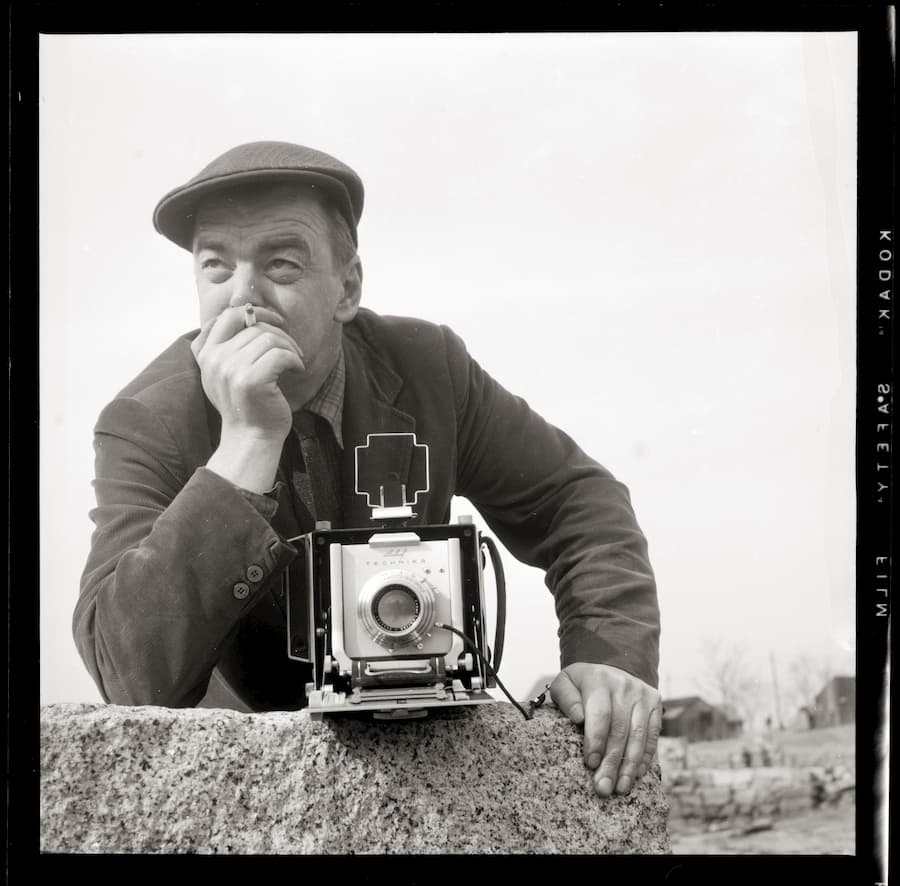
The primary (and best) reason to digitize museum collections is to share them with the public on the web. PMM’s photo archives staff has been hard at work for the past year getting to know Kosti Ruohomaa’s photographs through this process. Since he worked under the umbrella of a photo agency for most of his life (Black Star Publishing in Manhattan), the collection is most meaningfully grouped by his professional assignments: those he was given and those he conceived himself and pitched to them. It’s interesting to observe that many of the “self-assignments” were studies of particular aesthetic and cultural themes which the photographer circled back to repeatedly throughout his career.
Beginning in January of 2021, we’ll use this page to showcase a few new assignments each month. Please check back here to further explore the captivating work of this iconic Maine talent. Click on any of the thumbnails below to open that group of images in our online database.
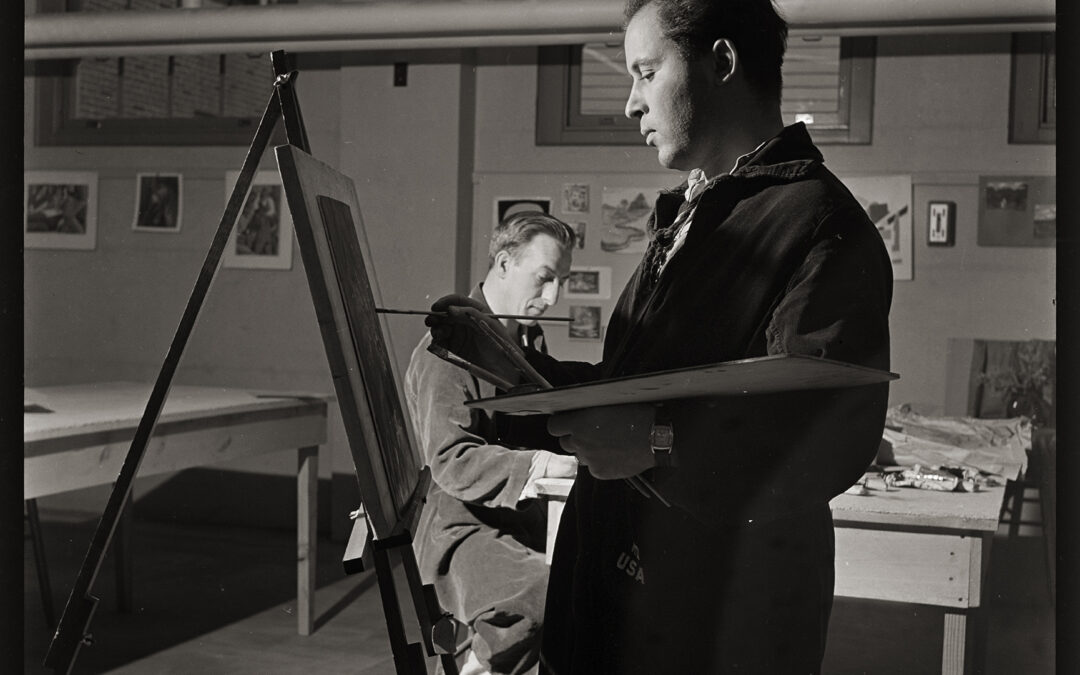
Rehabilitation — Halloran Hospital
In the winter of 1944, Kosti Ruohomaa took a series of photos of volunteer craftsmen providing art therapy for wounded soldiers returned from World War II, in a program organized by the Red Cross.
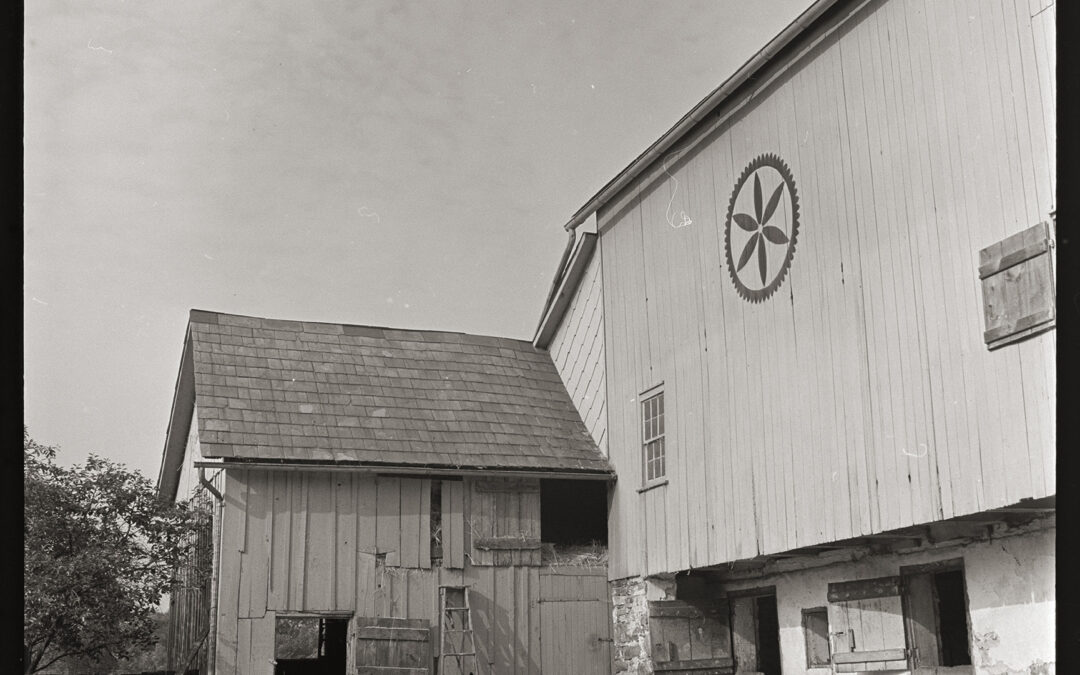
Barns—Pennsylvania
Kosti Ruohomaa’s interest in folk traditions, historic structures, and rural life came together in a study of Pennsylvania barns he did for Life magazine in 1944.
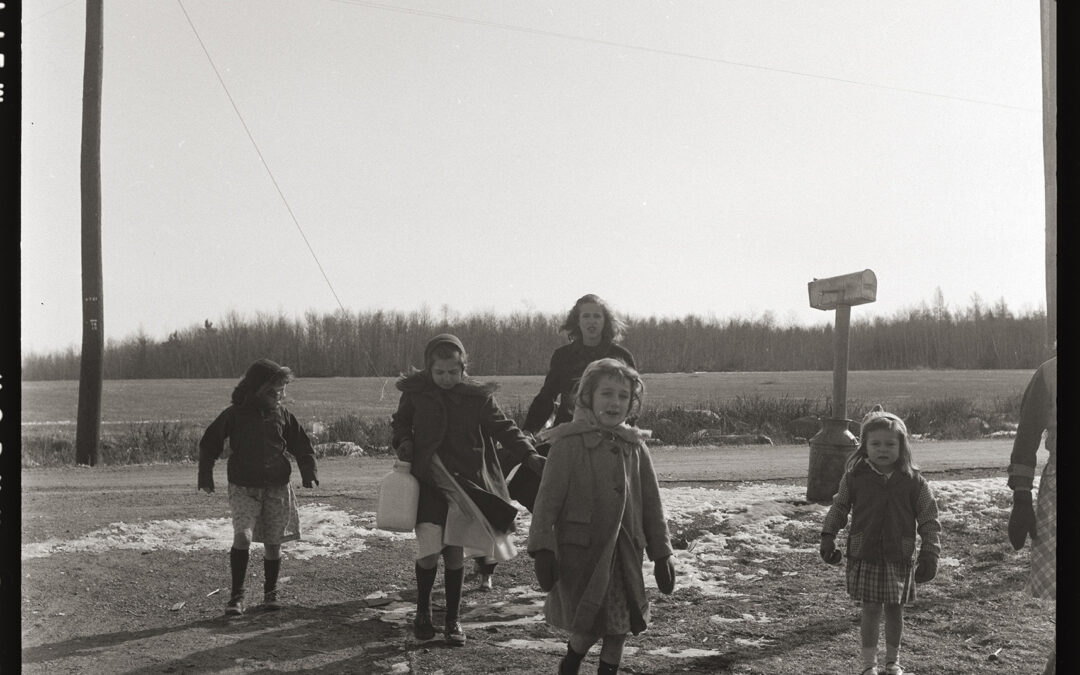
Parade—Large Family
In the early 1950s, Ruohomaa visited two burgeoning families in rural Maine, including Therees and Lloyd Brooks, who were raising 12 daughters in an old schoolhouse.
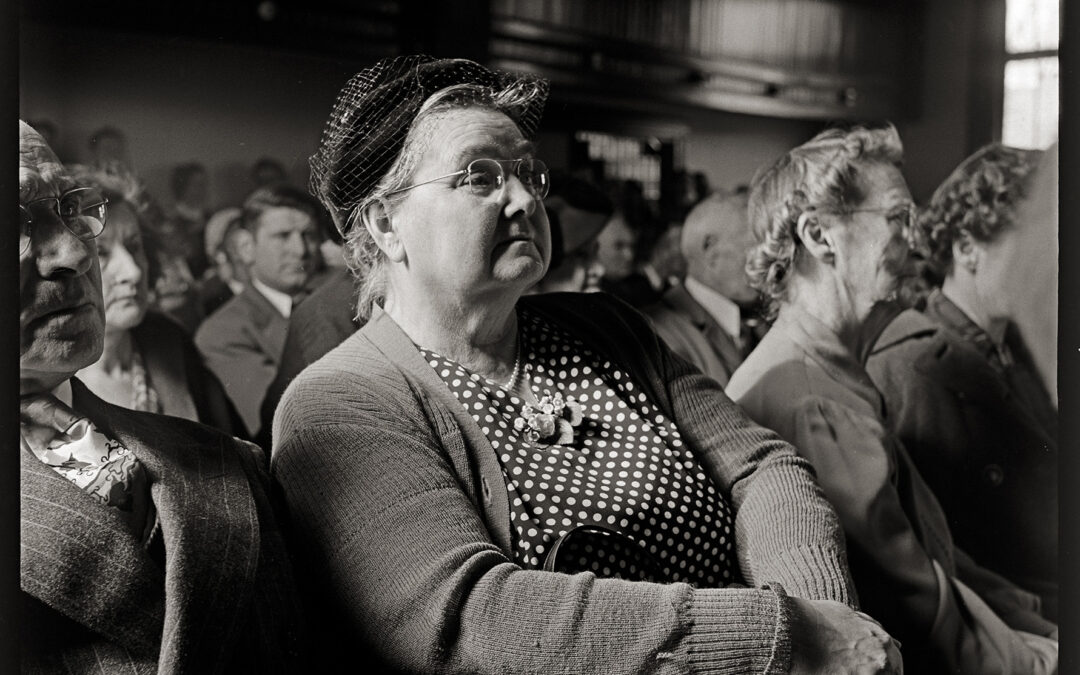
Town Meeting—Enfield, New Hampshire
Kosti Ruohomaa documented several town meetings all over New England, and not only captured democracy at work, but also the variety of people in the town, the weathered faces of the hard-working folks that he loved to focus on. In this series, Kosti documents a particular controversy being discussed at the Town Meeting of Enfield, New Hampshire in 1954.
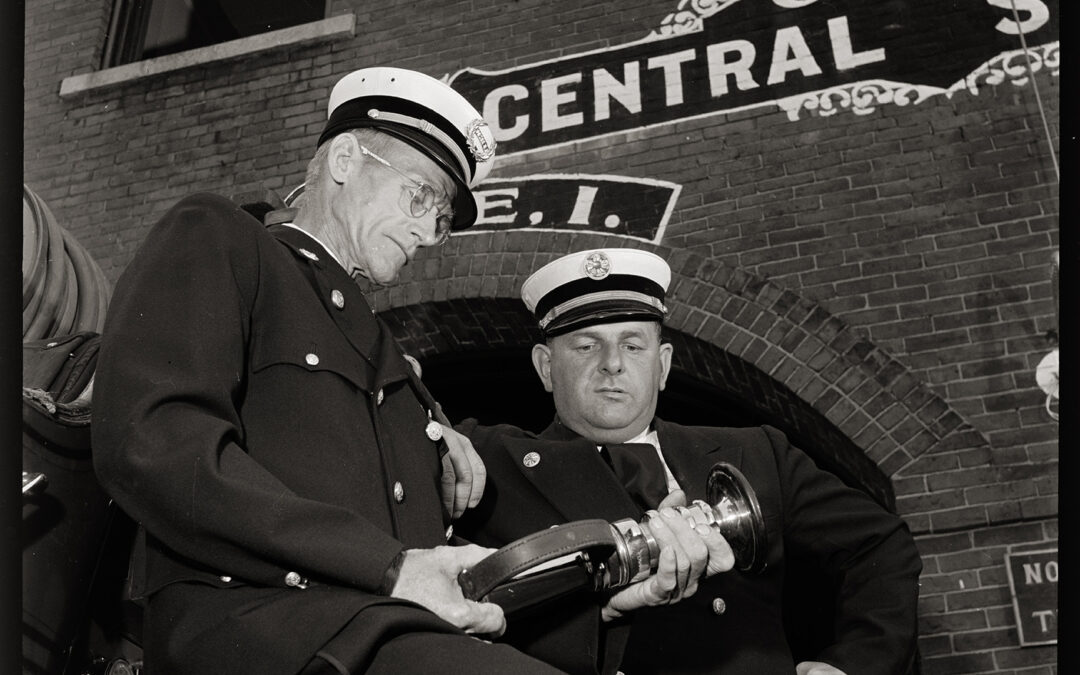
Hands Across the Border
Kosti Ruohomaa took a series of photos illustrating the connections between the people living in Calais, Maine, and St. Stephen, New Brunswick, just across the border in Canada. Kosti included images of the institutions that serve both communities like the Chipman Hospital in St. Stephen and the Calais Free Library.
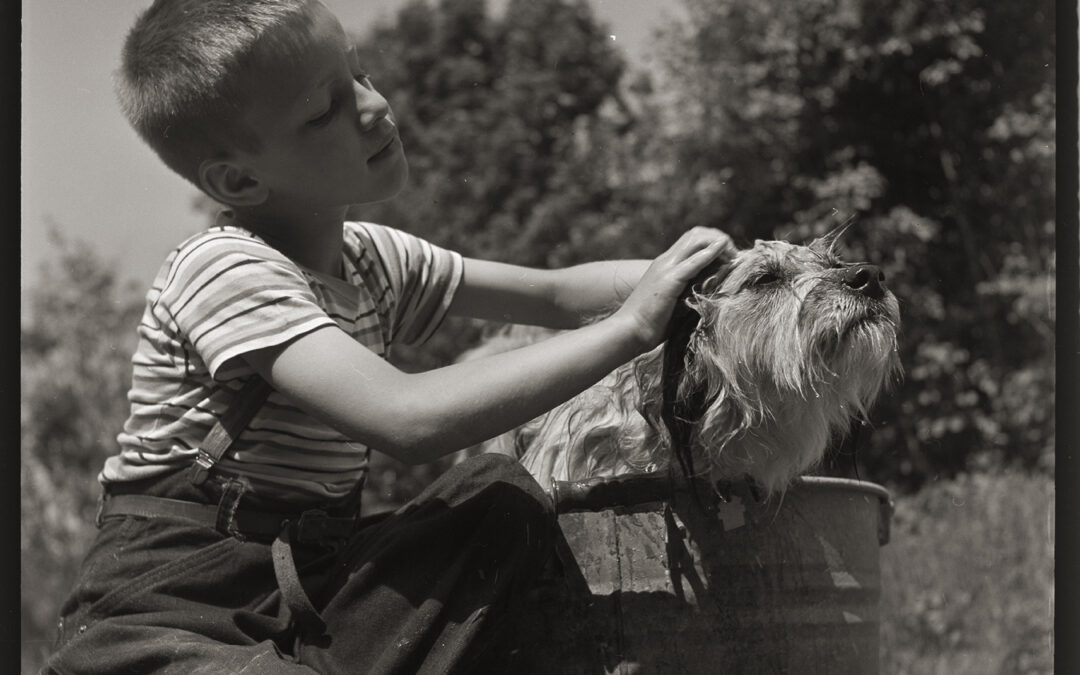
Dog Washing
This small group of images muses on kids with their pets, particularly an unidentified 10 year old boy proudly washing and grooming his dog, who seems to as captivated by the ritual as his owner.
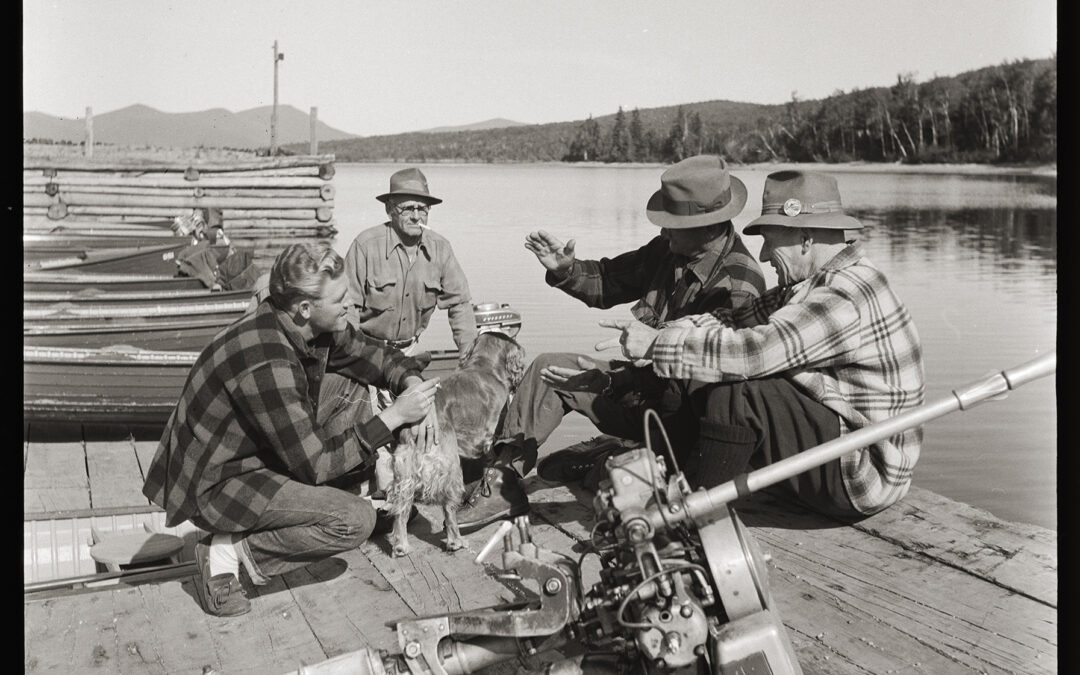
Trapper
Kosti had a fascination with traditional skills and activities and the men who kept these traditions alive. The Maine Guides photographed in this series were hired for their hunting, fishing, and survival skills, but here we see them chatting and telling tall tales by the woodstove at the Kennebago Lake Club.
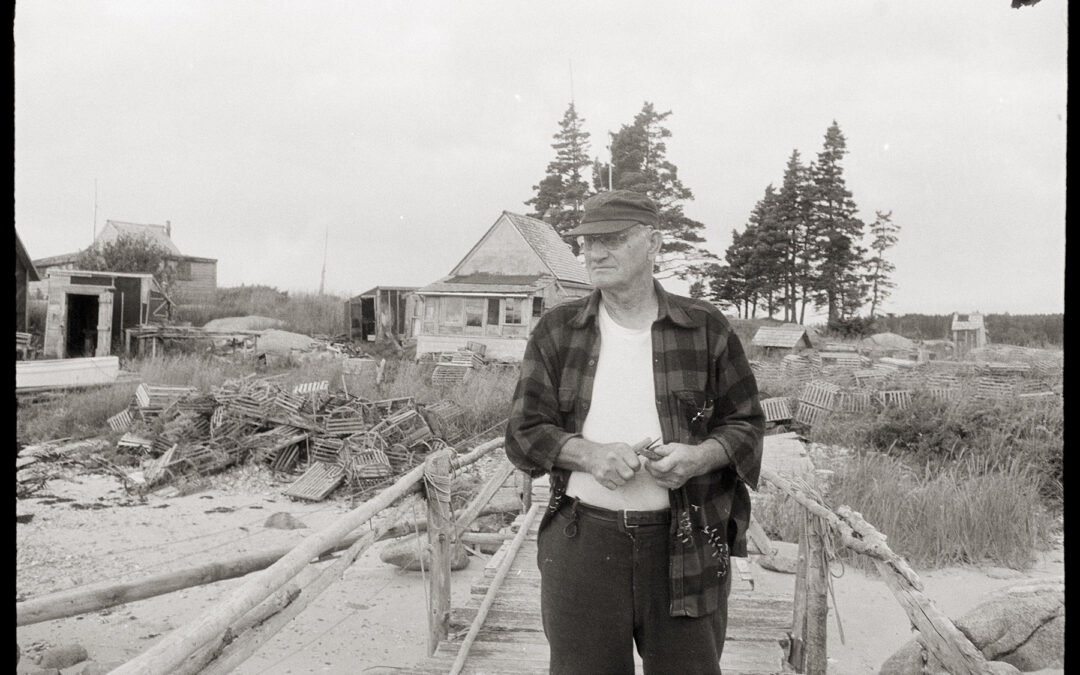
Lobster Family
In the summer of 1959, Kosti spent time with friend and writer Margaret Graham Neeson with the extended Post family at their home on tiny Mink Island, off of Jonesport, closely following three generations as they went about their days lobster fishing.
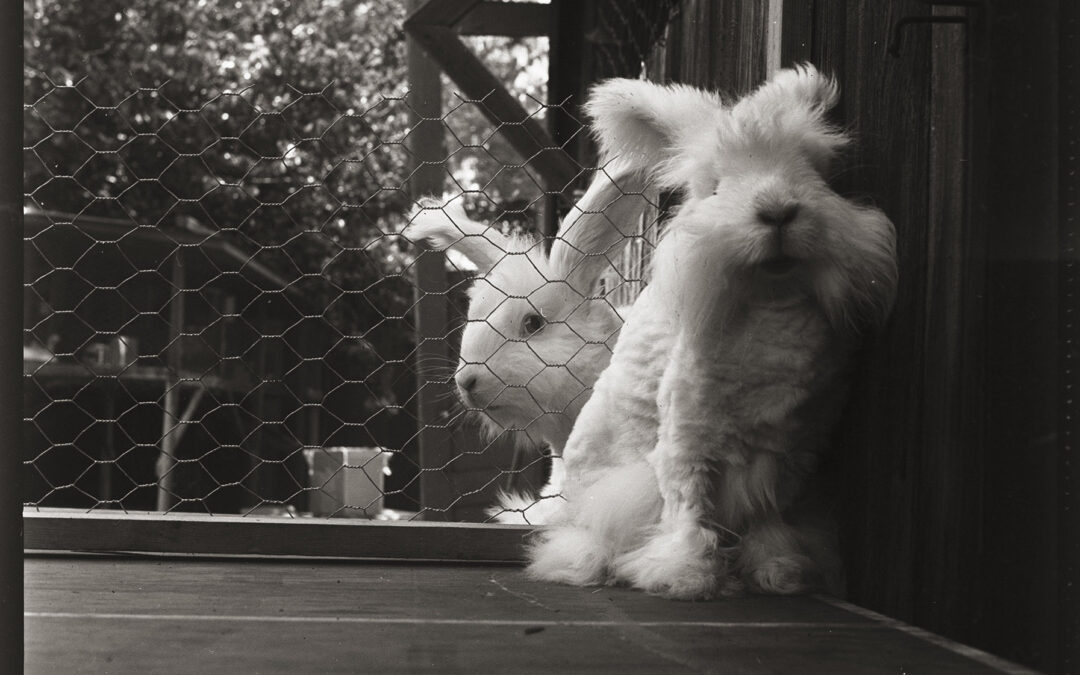
Angora Rabbits
Early in his study of photography, Ruohomaa dropped by the Angora Rancho farm in Van Nuys, California. The U.S. had recently entered WWII; Angora rabbits are raised for their hair, which was used to line parachutes that were being manufactured for the war effort.
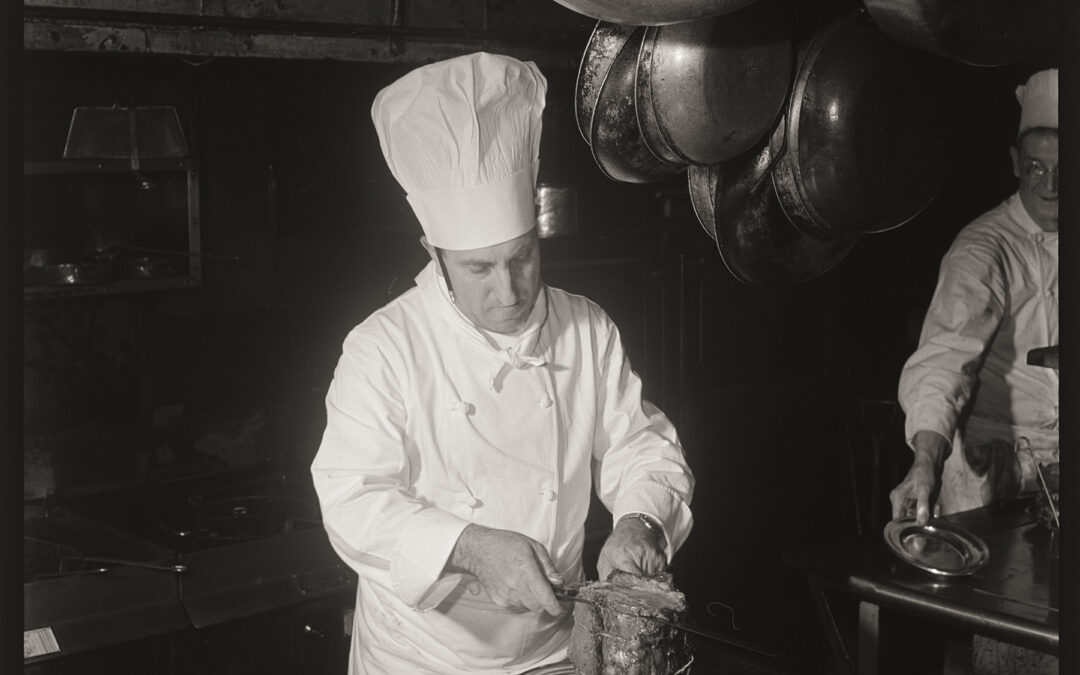
Restaurants in New England
Kosti took a series of photos of New England restaurants, including the Parker House in Boston and Toll House Inn in Whitman, Massachusetts, and a traditional clambake. Kosti showed an interest in historic buildings, and many of these restaurants were in historic structures with interiors designed to harken back to an earlier century.
